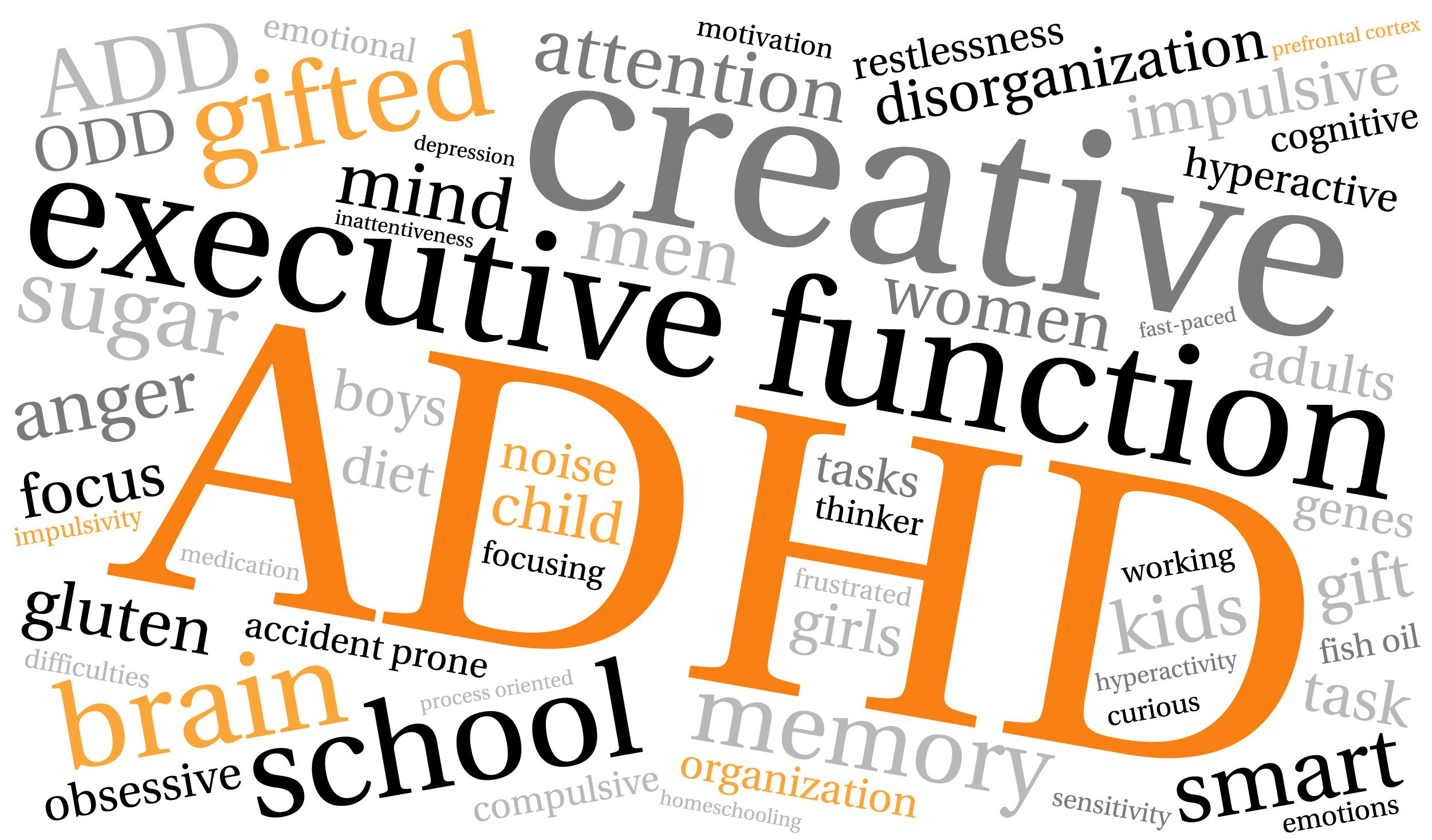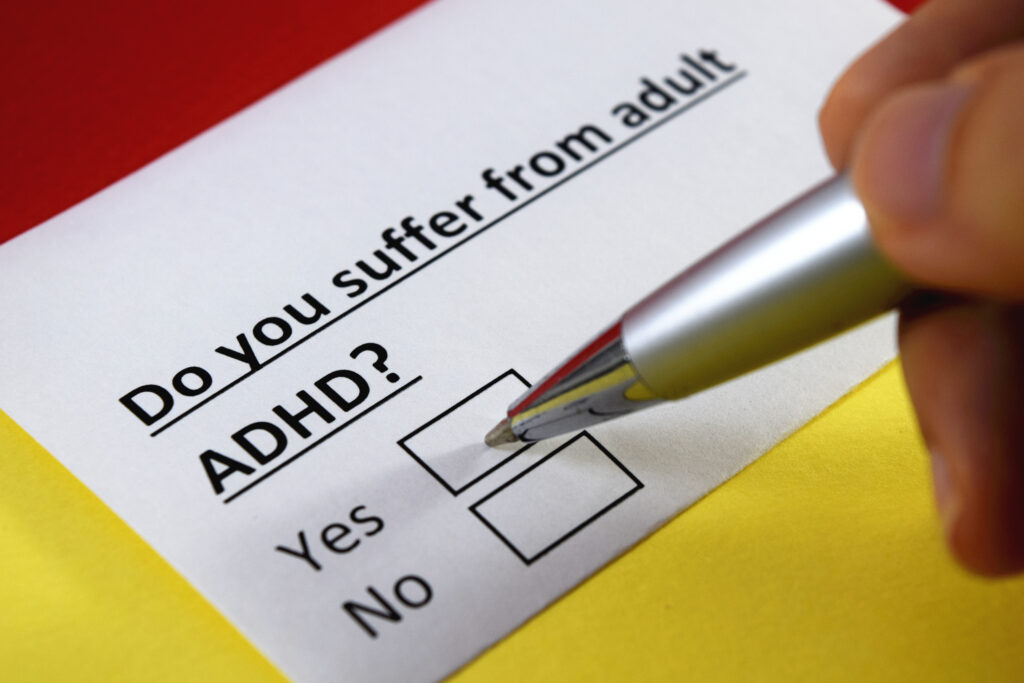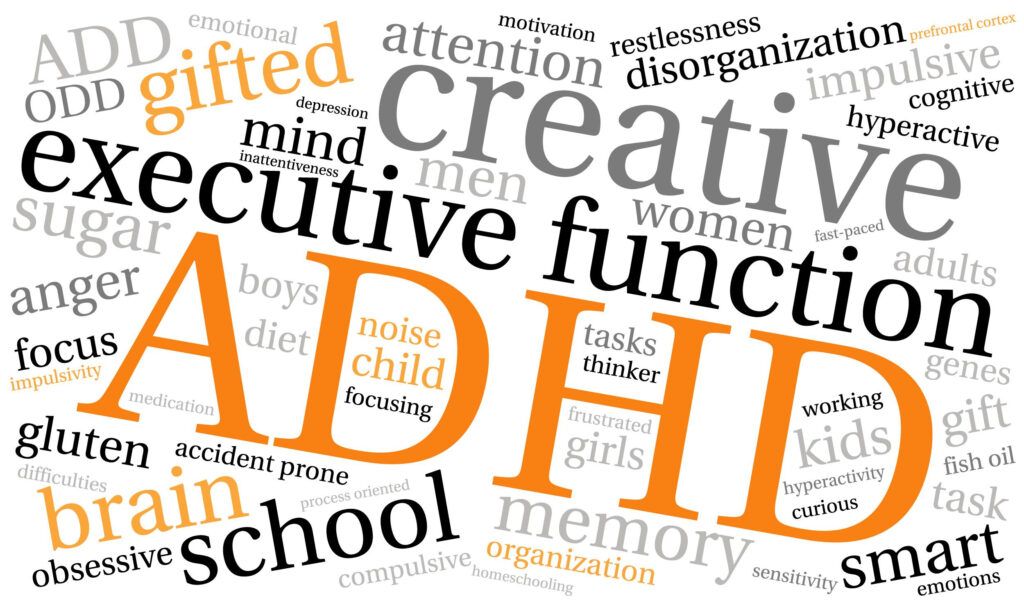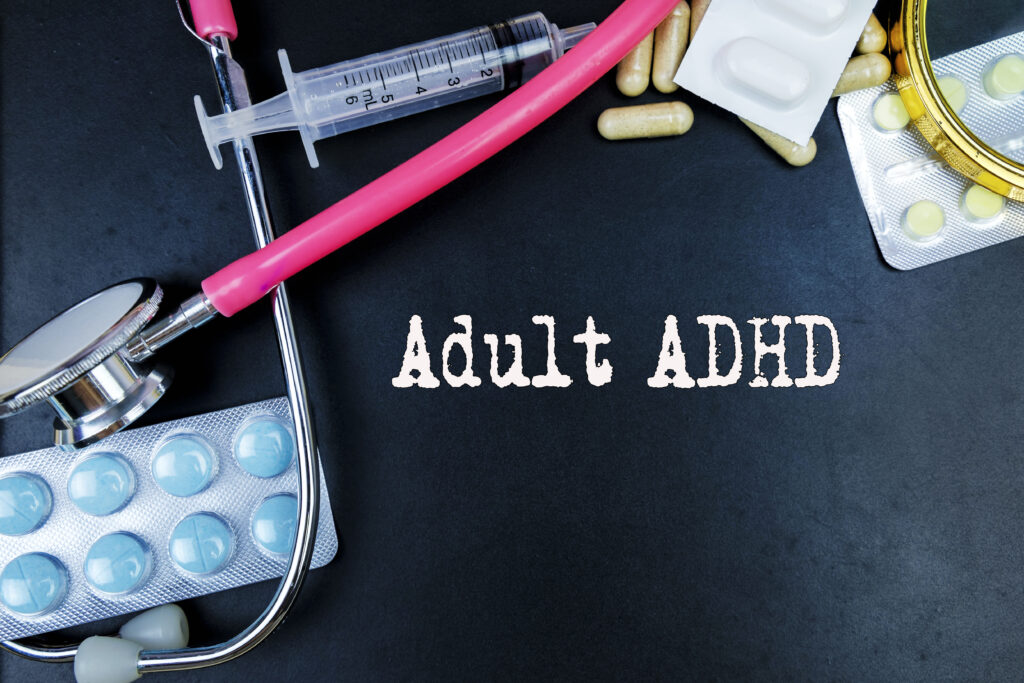Manifestations of Adult ADHD

Manifestations of Adult ADHD

Your laundry is piled on the couch, you’re 2 days late submitting your report for work, and there’s a past-due notice for an unpaid bill sitting on your kitchen counter. If this sounds familiar, you may be one of the thousands of adults with Attention Deficit Hyperactivity Disorder (ADHD). When most people think about ADHD, they think of things like missed deadlines and unfinished tasks, however, there are many ways in which ADHD can affect your life. Some symptoms are easy to identify, while others, like challenges with planning and low frustration tolerance, may not be as obvious.
Should I be Evaluated for ADHD?
While many people with ADHD are diagnosed as children, some of us are well into adulthood before realizing we may have ADHD. In childhood, hyperactivity and inattention symptoms are more obvious and easily identified because most children spend a great deal of time at school, where fidgeting and challenges to concentrate causes disruptive behavioral concerns as well as poor school performance. As adults, no one is giving us a grade for assignment completion and we may not be required to sit for long periods of time, which makes our symptoms less obvious.
There are two types of attention: Automatic Attention and Directed Attention. Automatic attention is the attention that we give to the things we love and want to do. If you are an outdoors person and it’s a sunny day, it’s easy to give your attention to an outdoor activity that you love, like playing a sport or hiking. Directed attention requires that we give our attention to something we need to do, but don’t necessarily want to do, like completing a spreadsheet for your job when it’s a sunny day and you’d rather be hiking. Many ADHDers struggle to maintain Directed Attention and avoid activities that require it while easily giving in to activities that require Automatic Attention.
Attention Deficit Symptoms of Adult ADHD are:
- Lack of attention to details
- Difficulty staying on task
- Trouble listening
- Lack of follow-through
- Disorganization
- Procrastination
- Loses things often
- Easily Distracted
- Forgetfulness
Hyperactivity Symptoms of Adult ADHD are:
- Fidgeting
- Getting out of your seat often
- Chronic Restlessness
- Inability to engage in quiet activities
- Always on the go
- Talking excessively
- Blurting out or finishing sentences
- Interrupting or intruding on others
Adults with ADHD exhibit 5 or more of these symptoms in any setting consistently. All adults exhibit some of these symptoms at various times. If you are undergoing a particularly stressful situation, having difficulty paying bills, or have recently experienced a traumatic event, then it is very likely that you will have trouble with organization and be easily distracted, among other things. But when these behaviors are consistent, even in times of low stress, they may be due to ADHD.

Impacts of Adult ADHD
When we think of children with ADHD, we think of impacts such as difficulty maintaining good grades, trouble socializing, and getting into trouble for not being able to stay in their seats. In the adult world, ADHD can have an impact on many aspects of our lives, including our relationships, our employment, and even our safety.
Work performance can be highly impacted by ADHD. As children, we may have issues turning in an assignment for class, but as an adult, that can manifest into losing a job for not being able to complete required tasks. Things like difficulty with attentive listening, following through, procrastination, and disorganization can make holding down a job very difficult and sometimes impossible. This is even more likely if an individual is undiagnosed and/or unable to seek treatment for their ADHD.
Relationships can also be greatly affected by ADHD. Friendships, family relationships, and romantic relationships can be impacted by impulsivity, trouble listening, and forgetfulness. Forgetting important dates, like an anniversary, for example, can put a strain on any relationship. Family members may get upset when you’re late for an event. Others may not realize the effect that ADHD can have on your behaviors and can feel offended by your actions.
Failure to follow the rules and impulsivity in school can no doubt cause problems for the individual as well as the class at large. Failure to follow the law and impulsive decisions as an adult can result in more serious consequences, such as jail time or injury to oneself and others. Studies have shown that there can be a link between ADHD and unsafe behavior, up to and including criminal behavior. This is much more common in adults with undiagnosed and/or untreated ADHD.
Diagnosing Difficulties of Adult ADHD
It is estimated that between 2.5% and 4.4% of adults are diagnosed with ADHD. Even though adult ADHD is becoming more widely recognized and is diagnosed more frequently now than in the past, many adults with ADHD remain undiagnosed for years and even throughout their lifetime. This can lead to intense frustration and other disorders like anxiety and depression.
Recognizing the symptoms of Adult ADHD is important. Children are often referred for ADHD evaluation when they exhibit signs of hyperactivity, fidgeting, inattentiveness in school, or failing grades. These symptoms are easy to identify. Adults with ADHD may experience disorganization, procrastination, or forgetfulness, all of which can be attributed to many things other than ADHD. This makes diagnosis more difficult for adults.
Unfortunately, there is no universal, easy-to-administer test that is used to diagnose ADHD. The process of determining a diagnosis involves
- A physical exam, to rule out other medical concerns
- An intensive clinical interview to gather information on family history, past medical history, and symptoms experienced
- Psychological testing and/or ADHD rating scales to evaluate symptoms.
ADHD can be diagnosed by a Family Physician, Nurse Practitioner, Physician’s Assistant, Psychiatrist, or Psychologist. While the symptoms of ADHD are outlined in the Diagnostic and Statistical Manual of Mental Disorder (DSM -V), different providers will use different approaches to determine a diagnosis. Common rating scales used include:
- Brown Executive Function/Scale for Adults
- Adult ADHD Self-Report Scale
- Adult ADHD Lifespan Functioning Interview
- World Health Organization ADHD Self-Report Scale

How is ADHD Managed?
No two people with ADHD have the same symptoms and no two people will have the same outcome with the same treatment. This is why accurate diagnosis and exploration of all options available to manage ADHD are extremely important. It seems everyone is at least somewhat familiar with medications used to treat ADHD. Stimulant medications such as Ritalin and Adderall have been around for decades and have proven to be effective treatments for many children and adults with ADHD. However, medication may not be right for everyone and is not the only option available.
Cognitive Behavioral Therapy, individual counseling, and marital and family counseling can all be beneficial options for managing ADHD, either alone, or in conjunction with medications. Psychotherapy and counseling can help with improving self-esteem, learning how to reduce impulsive behaviors, and developing better problem-solving skills. Improving relationships will also have a positive effect on your home and work life. You can also develop better time management and planning skills to improve your efficiency and effectiveness.
If you feel that you may be exhibiting some or all of the symptoms of ADHD, it is important to discuss it with your healthcare provider to determine if a formal evaluation would be appropriate for you. In my experience, some patients have a difficult time discussing these symptoms. This can be due to stigma or past experiences that have caused them to have a negative view of ADHD. Although it can be difficult, it can make a huge positive impact on your life to have your concerns addressed and get an accurate diagnosis. Improvements in your relationships, work life, and overall happiness will make it all worth it.
References
ADDitude. (2022, November 17). Adult ADHD: A guide to symptoms, signs, and treatments. ADDitude. Retrieved November 28, 2022, from https://www.additudemag.com/adhd-in-adults/
Bigleyj. (2022, October 20). 18 symptoms that could indicate adult ADHD. Cleveland Clinic. Retrieved November 22, 2022, from https://health.clevelandclinic.org/adhd-symptoms-in-adults/
I think I have ADHD: Adult symptom & diagnosis guide. ADDitude. (2021, February 8). Retrieved November 28, 2022, from https://www.additudemag.com/slideshows/adult-adhd-test-diagnosis/
Mayo Foundation for Medical Education and Research. (2019, June 22). Adult attention-deficit/hyperactivity disorder (ADHD). Mayo Clinic. Retrieved November 23, 2022, from https://www.mayoclinic.org/diseases-conditions/adult-adhd/symptoms-causes/syc-20350878
Nall, R. (2021, January 19). Why having ADHD can be a benefit. Healthline. Retrieved November 30, 2022, from https://www.healthline.com/health/adhd/benefits-of-adhd
Stanborough, R. J. (2022, January 21). What to know about adult ADHD diagnosis. Healthline. Retrieved November 30, 2022, from https://www.healthline.com/health/adult-adhd-diagnosis#professional-diagnosis

Amy Burden
About the Author
Amy Burden is a Family Nurse Practitioner, Health Content Writer, and an ally to the neurodivergent community. She has a passion for helping people and enjoys volunteering her time to advocate for education, accessibility, and kindness.

